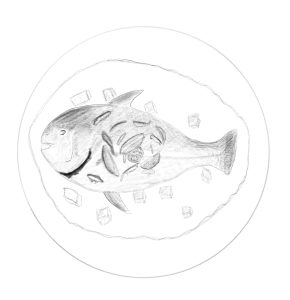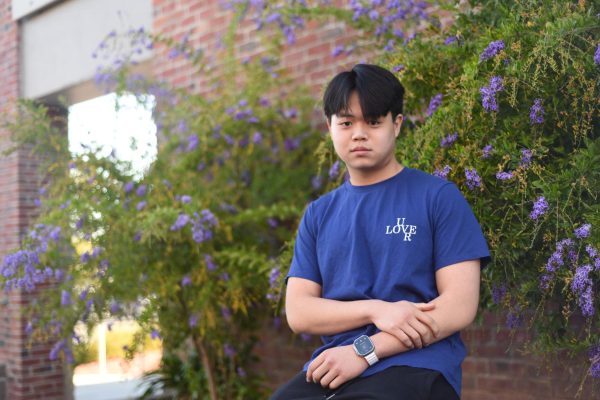“What time is it there? Take your dinner already?” Sitting at home on my couch, I glanced at the time on my phone: 8:36 p.m. As I said it aloud and nodded my head, I remained unsurprised by my grandmother’s words, spoken with much tender affection. Reminiscing about the past, nostalgia coursed through my veins, making me feel more connected to my family than ever despite the distance.

Being born into a Chinese family in Singapore, where multiculturalism is ingrained into our history, I was used to the way love is expressed within families. In Singaporean culture, when an elder and a younger relative meet, it’s very common for elders to ask them if they have eaten, regardless of the time of day. When I was in primary school, whenever I went to my grandparents’ house, the first thing they would ask me was “Zha bua bhui?” or “Have you eaten?” in Teochew, the Chinese dialect we speak. Despite it being 3 p.m. and having obviously eaten lunch by then, my grandparents would still persistently ask this question, making sure that I was full and cared for. Sometimes, when I conveyed the slightest expression of hunger, they would immediately start preparing food for me. This food was spectacular, including specialty dishes like steamed pomfret, stir-fried vegetables and curry chicken with rice, all homemade right in front of my eyes.
The scene in the kitchen was a fiery battle between the orange-red flames and my grandmother. With every up-down motion of her wrist, there came the sound of the metal spatula scraping the wok, tossing the vegetables. Staring at the blaze engulfing the wok, charring the chicken, I felt the heat emanate into my eyes. Feeling the need to cool my vision, my eyes drifted to the vapor rising from the bamboo basket. From there, the scent of steaming fish and ginger entered my nose, making me even hungrier. As soon as the china came onto the table, my grandmother would hint at me to dig in first, despite an unspoken rule that everyone should be at the table before we start eating. While I ate the piping hot delicacies on the round table in front of me, I would sit between my grandparents, surrounded by their love.
It wasn’t until I moved to America, where I am apart from most of my relatives, that I began to realize the missing pieces of myself that represent my identity — the distinct food and care my family provided for me. Sometimes, it would strike me how disparate my family greetings were, compared to the typical “Hi, how are you?” used by my American friends.
Initially, I didn’t feel the effects of being away from my family. I hadn’t realized that food was a key aspect of my experience and thought that I could find alternatives, given that there were many Asian restaurants nearby. As I searched for the taste of my grandmother’s cooking, I realized how unique it was. Every plate of food I tried had a slight imbalance of sweetness and savoriness that could not satisfy my taste buds. Despite my mother’s and my numerous attempts to recreate her dishes, we could not get it right.
Week after week, as I FaceTimed my grandparents back in Singapore, I eventually came to realize that the phrase “Have you eaten?” that I hadn’t paid much attention to until now was my grandparents’ way of showing their love. When my grandparents asked that question, it would satisfy my hunger, because deep down, I missed the embrace of my grandparents through their concern of whether I had eaten or not. As their words emanated through the screen, I felt the reminiscence of the past where I was cared for, overwhelming me with comfort beyond food. Fueled by my grandparents’ love, I would go through the week, looking forward to seeing them again.
Now in a new stage of my life, I can never relive the same experiences I had in my childhood. The warmth and comfort of nostalgic, home-cooked food and my time spent eating with my grandparents is an integral part of my identity. Whenever I get a call from my fairly distant relatives, I can always anticipate the question, “Have you eaten?” Now being able to understand the true depth of this phrase, I sense a familial bond that transcends boundaries of distance or time.









